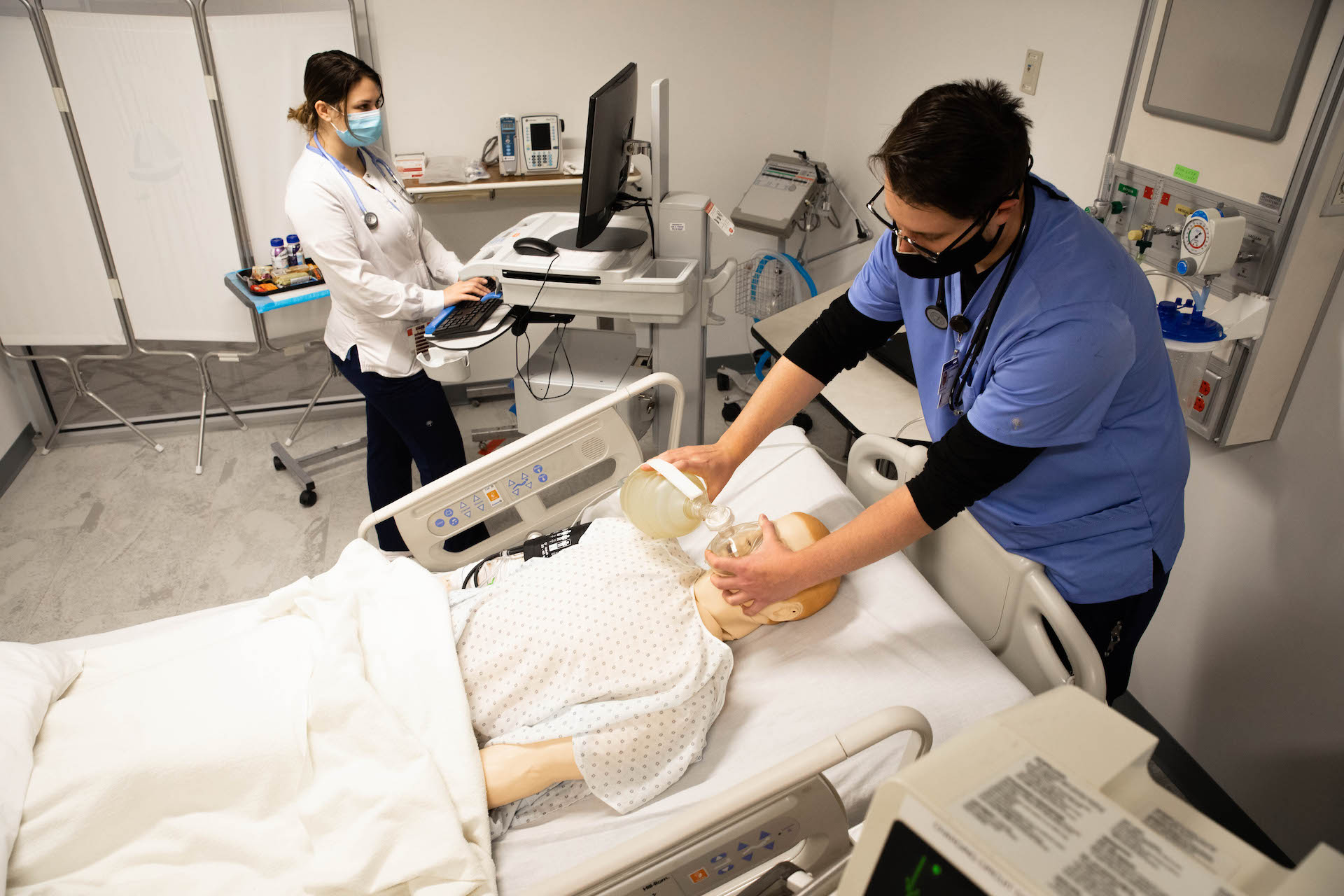Essential Qualifications for Nursing
A student must be able to practice nursing as it is defined by the State Board of Nursing. The student must have adequate cognitive, sensory, behavioral and psychomotor functioning to effectively implement nursing care, meet standards of performance, and refrain from excessive absence from the classroom or clinical setting.
The Essential Qualifications required to progress and be successful in the Practical Nursing Program at Bucks County Community College include, but are not limited to the following:
MOTOR SKILLS
Nursing students must demonstrate sufficient psychomotor skills to provide a full range of safe and effective nursing care. Examples include:
- Gross Motor Skills:
- Stand and maintain balance
- Safely move within confined spaces
- Reach above the shoulders and below the waist
- Freely ambulate patient to patient
- Fine Motor Skills:
- Grasp small objects with hands and fingers
- Handle small, delicate equipment without extraneous movement, contamination, or destruction
- Coordinate hand/eye movements
- Operate a keyboard/computer
- Pick, pinch, squeeze fingers to do such tasks such as manipulate syringe, dispense medications
- Physical Endurance/Strength:
- Pull/push within 25lbs. of force
- Lift up to 50lbs.
- Use upper body strength
- Stoop, reach, stand, walk for long periods of time
- Sustain repetitive movements (perform CPR)
- Maintain physical work tolerance
SENSORY
Nursing students must have the ability to acquire information through demonstration and experience using all senses. Examples include:
- Visual:
- Adequate depth perception
- Adequate Peripheral vision
- Distinguish color
- Adequate vision both near and far
- Auditory:
- Detect sounds related to bodily functions using a stethoscope
- Detect audible alarms, monitors, call bells
- Clearly hear ‘normal’ speaking tones, faint voices, phone conversations
- Tactile:
- Feel vibrations
- Detect changes in skin temperature
- Feel differences in sizes , shapes
- Detect changes in environmental and appliance temperature
- Olfactory:
- Detect odors from bodily fluids, wounds, breath,environment, spoiled foods
- Detect smoke
- Detect gases, chemicals, or noxious odors
COMMUNICATION
Nursing students must have the ability to communicate, comprehend, read, and write effectively and efficiently. Examples include ability to:
- Communicate ideas, information, and feelings clearly, effectively and sensitively in written and oral forms
- Demonstrate a willingness and ability to give and receive feedback
- Read graphs, understand charts, decipher documents
- Process and interpret information accurately and in a timely manner
- Understand, clarify, and interpret non-verbal communication
COGNITIVE
Nursing students must demonstrate cognitive ability and critical thinking skills. Examples include ability to:
- Measure, calculate, reason, analyze, integrate and synthesize information and observations
- Quickly read and comprehend extensive written material
- Evaluate and apply information using critical thinking skills
BEHAVIORAL/ EMOTIONAL
Nursing students possess the emotional health required for the full utilization of intellectual abilities, exercise of good judgment, and the prompt completion of all responsibilities. In addition, the nursing students must:
- Function effectively under stress
- Adapt to rapidly changing, unpredictable environments
- Demonstrate accountability and follow-through
- Maintain mature, sensitive, empathetic relationships, while understanding professional boundaries
- Understand own values, beliefs, attitudes and how this could affect perceptions of others
- Possess the ability to recognize conflicts that may impede performance and engage in effective conflict resolution
- Have the ability to examine and change personal behavior when it interferes with productive individual or team relationships
- Possess the skills and experience necessary for effective and harmonious relationships in diverse, cultural populations
PROFESSIONAL CONDUCT
Nursing students must:
- Possess the ability to reason morally and practice nursing in an ethical manner
- Abide by the Professional Nursing Code of Ethics and Standards of Practice
- Possess attributes that include compassion, empathy, altruism, integrity, honesty, responsibility and tolerance
- Act as a moral agent in the practice of nursing
REASONABLE ACCOMADATIONS FOR DISABILITES
The above are examples of the essential functional abilities needed to be successful in the Practical Nursing Program. All students are required to meet these essential qualifications. Allowing for individual differences, and encouraging program completion for students with a documented disability, the Nursing Program will work with Disability Services to provide reasonable accommodation to meet these essential qualifications. The program is not required to make modifications that would alter the nature or requirements of the program or provide auxiliary aids that present an undue burden to the program and its clinical sites.
Requests for accommodation should be directed to:
- (215) 968-8182 (voice)
- (215) 968-8033 (fax)
Data adapted from "A Validation Study: Functional Abilities Essential for Nursing Practice" by Carolyn J. Yocom, National Council of State Boards of Nursing Inc., 1996.
Rvd2013/mrue
